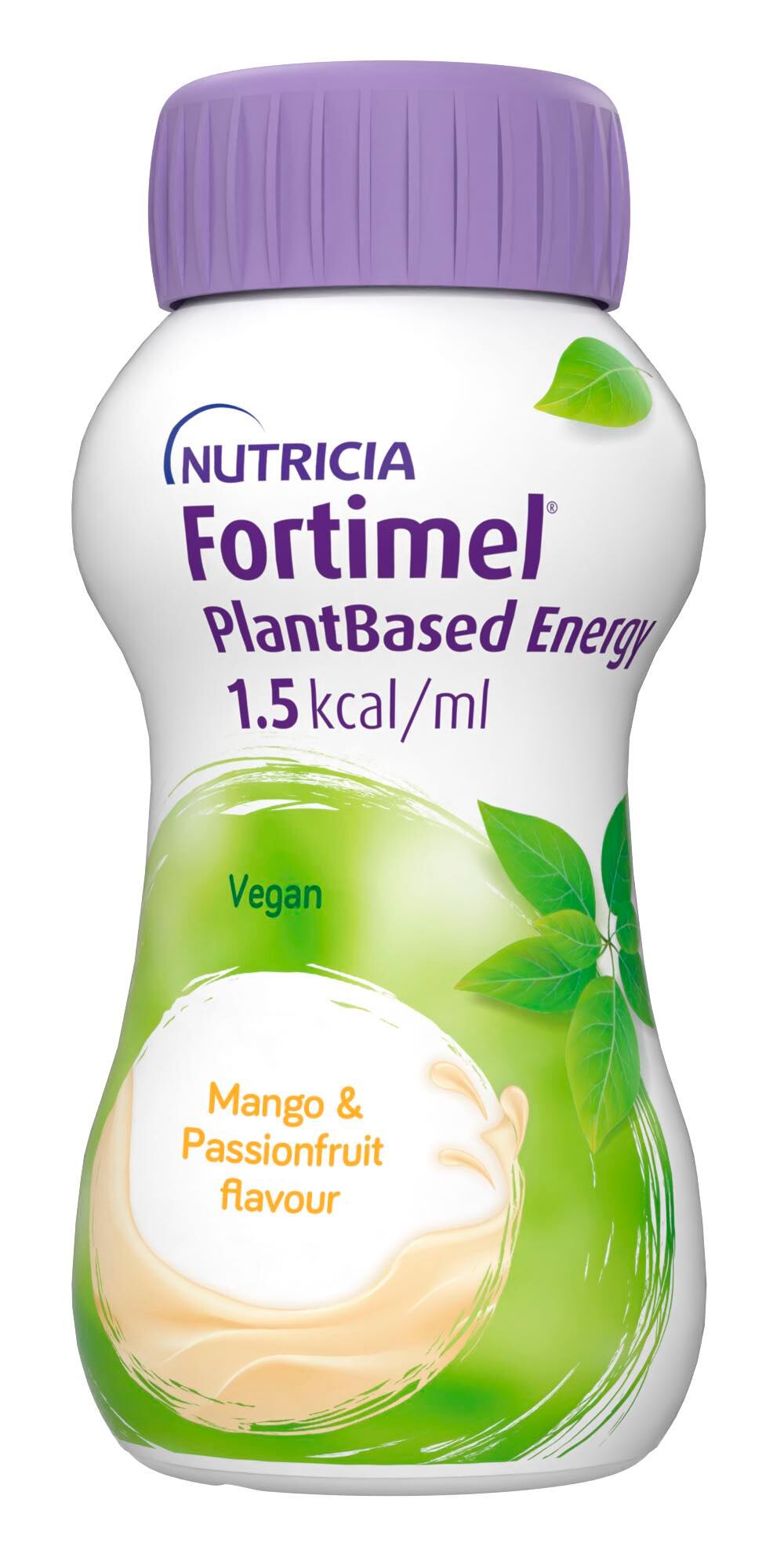The Dutch oral nutrition company, owned by Danone, is catering to patients who follow a dairy-free diet with a new pea and soy based alternative to Fortimel Energy – a medical purpose food supplement for dietary management of disease related malnutrition.
Fortimel PlantBased Energy is designed to match the nutritional profile of the original dairy formula.
Matching Nutritional Benefits
As a general rule, many animal derived proteins contain a complete body of essential amino acids so more readily fulfil the requirements for proteins to meet metabolic needs.
While some plant sources are rich in protein, as a single source they contain more non-essential amino acids. However, utilising the Protein Digestibility Corrected Amino Acid Score (PDCAAS), Nutricia has achieved a nutritionally complete product using a blend of proteins derived from pea and soy sources.
Assessing the PDCAAS
By assessing the digestibility in combination with the amino acid score, the protein quality in any given source can be assessed and officially recognised by the Food and Agricultural Organization and World Health Organization.
This measuring scale applies only to essential amino acids, calculating the percentage of amino acids being digested and absorbed in relation to the ratio of amino acid content percentage to amino acid requirement.
A protein source with a PDCAAS of 1 is determined as high quality, which has proven to be the achievable score of Fortimel PlantBased Energy.
Protein and Disease Related Malnutrition (DRM)
The product will sit in a valuable space for patients with DRM. Under-nutrition in European countries is a prevalent and consistent concern. With likelihood to be more susceptible to illness and reduced ability to recover, malnutrition affects both quality and ability to maintain life, and studies reported by Danone’s Nutricia team suggest as high as 1 in 4 adults admitted to hospital suffer from DRM.
Malnutrition can be linked to underlying medical conditions and is defined by an inability to absorb an adequate quantity of nutrients as a result of diseases or illness. With protein absorption vital for cell growth and repair, it is suggested by Danone research that with medically supervised protein intervention, DRM risks can be reduced and managed.
Comparing the Products
The original dairy based formula is regarded as nutritionally complete, containing substantial vitamins, minerals and a near 12g protein per 200ml serving (5.9g per 100ml). The equivalent PlantBased version holds an accurate 12g status per 200ml serving (6.0g per 100ml). In the balance of vitamins, there are slight variations between the new and original iteration of the product.
The dairy based Fortimel Energy contains 0.5mg more of Vitamin B6 (0.26mg vs 0.21mg) and 1.2mg more of Vitamin C (15mg vs 13.8mg). However, the new Fortimel PlantBased Energy leads in Vitamin B12 by 0.08 μg (0.5μg vs 0.32μg) and Vitamin K by 0.75μg (8.75μg vs 8.0μg).

Changing consumer needs
The necessity for plant-based alternatives lies within an increasing percentage of global populations turning to veganism. Numbers put forward by Nutricia suggest that 1 in 3 Europeans opt for an alternative diet, and up to 16% of patients with medical nutrition needs look for plant-based options as a priority.
Data that stems from personally invested polling suggests up to 3% of Europeans now follow a vegan diet. For those of whom this is due to dietary, political, or personal reason, a plant-based alternative to Fortimel fulfils a growing and necessary niche.
Dr. Anne Holdoway, a registered dietitian from the UK, stated during the ESPEN 2022 Congress: “Nutrition is not just about the nutrients. It also has many connotations in life, about the lives we lead, the interaction with other people, and respecting values and preferences.
“This is equally true in medical nutrition, where the importance of individualized nutritional care that is in line with people’s lifestyle preferences is very important. To provide this kind of individualized nutritional care, plant-based options are a welcome evolution of medical nutrition.”


